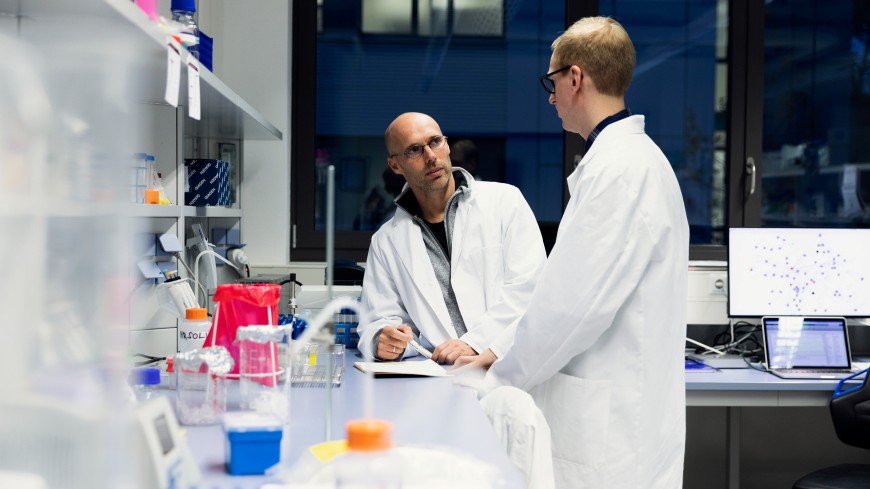2.7 million euros for the SYNSENSO Doctoral Network
Programmable biosensors using synthetic biology: Funding as a Marie Skłodowska-Curie Action
2022/04/22
The international “SYNSENSO” Doctoral Network that is coordinated by TU Darmstadt is developing a new generation of modular biosensors. The European Commission has now awarded the network a total of 2.7 million euros of funding as a Marie Skłodowska-Curie Action.

The SYNSENSO Doctoral Network (“Cell-free synthetic biology for combinatorial biosensor design”) that is being funded as a Marie Skłodowska-Curie Action (MSCA) is coordinated by Professor Heinz Koeppl. Ten doctoral students are carrying out research as part of SYNSENSO into a new generation of biosensors that can detect complex analyte profiles and computationally combine them at a molecular level. Students will be working at the interface between cell-free synthetic biology and molecular sensor design.
The full programmability and inexpensive synthesis of DNA sequences in synthetic biology makes it possible to combine individual sensor elements in a modular fashion to form new complex sensors. In particular, this enables the scientists to logically link signals at a molecular level. For example, if two sensor elements for different substances (analytes) are logically linked, the newly created sensor can either be programmed to only respond when both analytes are present in the sample or to respond as soon as at least one of the two substances is present. This is an interesting enhancement, especially in the current context of virus variants.
The international Doctoral Network follows an interdisciplinary and cross-sector approach that brings together experts in cell-free synthetic biology and molecular sensor design from the worlds of science and industry to develop novel, combinatorial biosensors. Six academic research groups and two industry partners are working together in SYNSENSO to create a mobility and educational platform for young scientists based on interdisciplinary research projects carried out across different locations. SYNSENSO has been designed to enable close cooperation between industry and universities and to allow researchers to play a leading role in industry later in their careers and launch innovative technologies onto the European market in the areas of in vitro diagnostics, environmental monitoring and other fields.
Synthetic Biology
SYNSENSO is another addition to the project portfolio at the Centre for Synthetic Biology at TU Darmstadt and strengthens the activities and international visibility of TU Darmstadt in the field of synthetic biology.
Alongside Professor Beatrix Süß and Professor Heinz Koeppl at TU Darmstadt, the SYNSENSO network also includes the following university partners: Imperial College London (Karen Polizzi), TU Eindhoven (Tom de Greef), University Rome Tor Vergata (Francesco Ricci), Italian Institute of Technology (Velia Siciliano). The industry partners involved in the network with MSCA doctoral students are the companies Dynamic Biosensors (Germany) and Ulisse BioMed (Italy). In addition, the following companies offer internships to SYNSENSO doctoral students: BRAIN AG (Germany), LenioBio GmbH (Germany), BioMerieux (France), Abvance BioTech (Spain) and Nuclera (Great Britain).
Marie Skłodowska-Curie Actions (MSCA) were set up by the European Commission to support the mobility and career development of researchers across countries and sectors and to improve the attractiveness of scientific careers. The networks are provided with support for doctoral training, research stays with experienced researchers, staff exchange programmes and mobility programmes.
Mikosch-Wersching/Koeppl/sip
